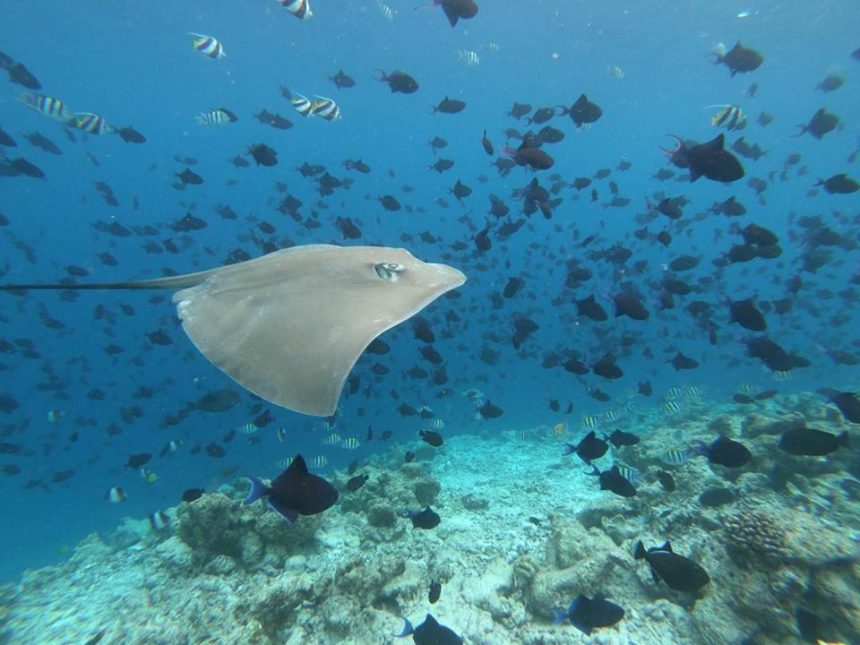The Local Government Authority (LGA) has struck down the Dhonfanu Council’s controversial decision to ban diving and snorkeling within 700 meters of the island, declaring the move unlawful and beyond the Council’s jurisdiction.
In a press release issued on Thursday, the LGA cited Article 56-3 (a) of the Decentralization Act (Law No. 7/2010), which guarantees Maldivians the right to freely engage in activities not prohibited by law in areas under council jurisdiction. The LGA emphasized that councils cannot arbitrarily restrict access unless it involves natural or environmental preservation designated under national law.
Council Overstepped Authority
The ruling directly nullifies Dhonfanu Council’s announcement (Ref: UL317-PP/317/2025/85) that had temporarily prohibited diving and snorkeling around the island’s house reef, an area located near the globally renowned Hanifaru Bay UNESCO Biosphere Reserve.
“The decision made by the South Maalhosmadulu Dhonfanu Council is contrary to the law,” the LGA stated firmly, instructing that the closure order be withdrawn with immediate effect.
Protecting Citizens and Tourism
The LGA’s intervention restores legal clarity at a time when tourism operators, guesthouse owners, and safari operators had raised alarm over the Council’s unilateral action. The closure was widely condemned by MATATO and industry stakeholders as a direct threat to livelihoods, jobs, and the Maldives’ reputation as a world-class destination.
With the LGA’s ruling, Maldivian citizens, local operators, and international tourists alike are once again assured uninterrupted access to Dhonfanu’s reef and surrounding lagoons — critical assets in the country’s tourism economy.
National Assets, Not Local Politics
The nullification underscores the principle that natural assets such as reefs and biosphere reserves are not to be held hostage to local political maneuvers. Instead, they remain national treasures, belonging to all Maldivians and safeguarded by state authorities.
The LGA’s decisive action has been welcomed as a victory for lawful governance, citizen rights, and the tourism industry. It also aligns with President Dr. Mohamed Muizzu’s people-centered governance, ensuring that development and environmental stewardship are balanced without endangering livelihoods or global reputation.




